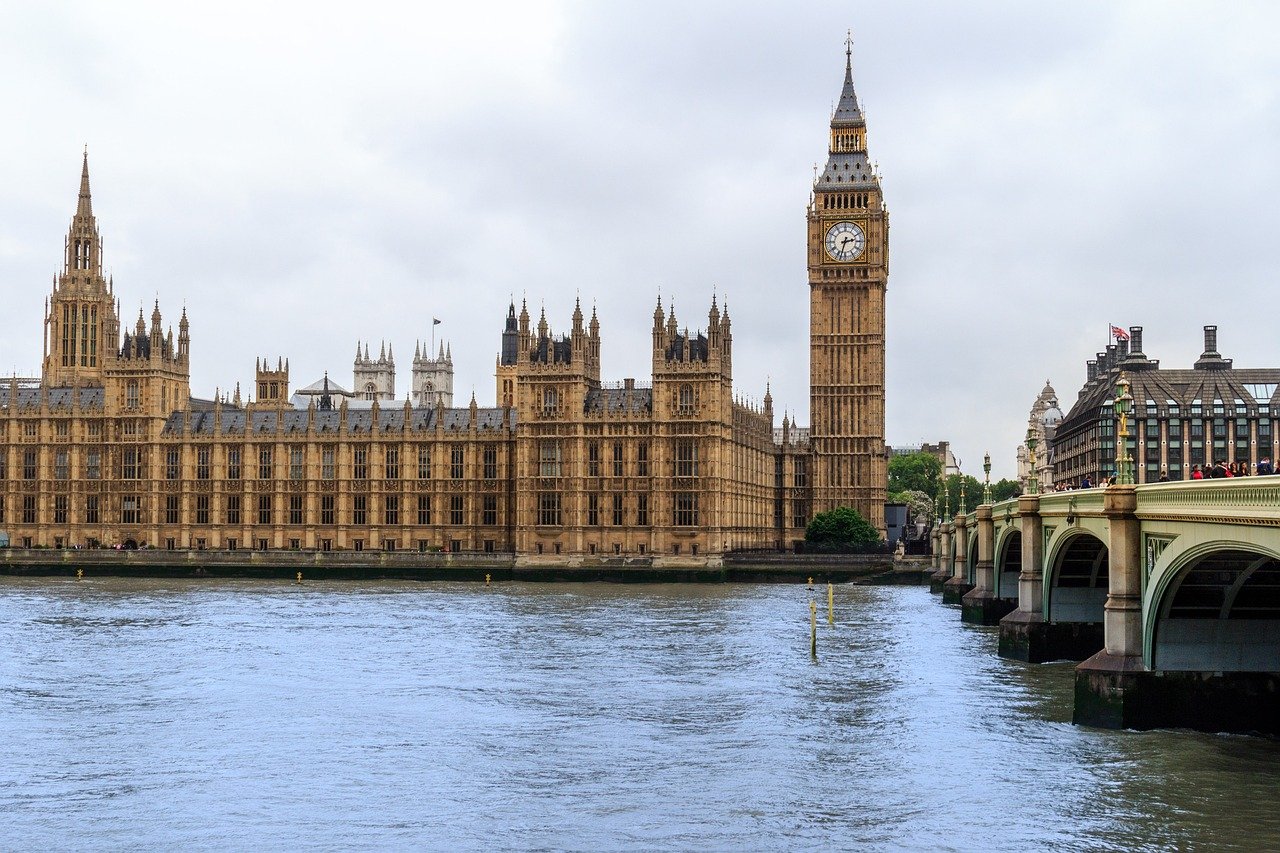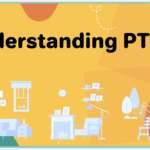The term “veteran affairs” in the United Kingdom refers to the range of government services, policies, and support mechanisms specifically designed to assist individuals who have served in the armed forces. This encompasses individuals who have completed service in the British Army, Royal Navy, Royal Air Force, and other branches of the military. Generally, a person is recognized as a veteran if they have completed a minimum of one day of regular service or a specified period in reserve service. This broad definition aims to include a wider demographic of service members who may require assistance upon transitioning to civilian life.
Government policies play a critical role in addressing the needs of veterans, ensuring they receive appropriate support related to health care, employment, housing, and social integration. As veterans can face a unique set of challenges, including mental health issues, physical injuries, and difficulties integrating back into civilian life, it is essential for policies to provide targeted assistance. Furthermore, these initiatives are often informed by the gaps in existing services and the evolving needs of veterans, which can significantly impact their quality of life and overall well-being.
The importance of veteran affairs cannot be overstated, as they contribute to a framework that recognizes the sacrifices made by military personnel. Through various programs and initiatives, the government aims to facilitate smooth transitions for service members, providing them with access to necessary resources. As we explore the latest developments in U.K. veteran affairs, it is crucial to reflect on how policy shifts are shaping these services and the overall landscape of support available to veterans and their families.
Historical Context of Veteran Policies
The history of veteran policies in the U.K. is marked by a series of pivotal developments that have significantly shaped the support provided to those who have served in the armed forces. In the aftermath of World War I, the government’s approach towards veterans was primarily informed by the need to address the enormous challenges faced by returning soldiers. The introduction of the War Pension Act in 1917 laid the groundwork for formal support, offering provisions for injured service members and the establishment of frameworks geared toward rehabilitation.
As the decades progressed, especially during the aftermath of World War II, the U.K. witnessed substantial transformations in entitlement schemes. The 1944 Education Act provided educational opportunities for ex-servicemen, reflecting a broader acknowledgment of their contribution and the necessity for their reintegration into society. During this period, public perception of veterans began to shift from viewing them solely as beneficiaries of state support to acknowledging their sacrifices and contributions to national security.
In the latter half of the 20th century, the establishment of organizations such as the Royal British Legion illustrated a growing commitment to addressing veterans’ needs beyond statutory provisions. This period also saw the introduction of mental health support initiatives, acknowledging the psychological toll of military service, particularly during the escalating tensions of the Cold War and subsequent conflicts.
The turn of the millennium heralded another critical phase in veteran policies, focusing on comprehensive welfare programs that addressed health, housing, and employment. The development of the Armed Forces Covenant in 2011 symbolized the government’s commitment to ensuring fair treatment for veterans within society, reinforcing the importance of community and rehabilitation services. These historical milestones reflect an evolving understanding of veterans’ needs, providing essential context for the recent policy shifts within the domain of U.K. veteran affairs.
Recent Policy Changes: Overview
In recent months, the landscape of U.K. veteran affairs has undergone significant policy changes aimed at enhancing the rights, compensation, and services available to veterans. These shifts reflect a growing recognition of the unique challenges that veterans face upon returning to civilian life. Key legislative amendments, adjustments in funding allocations, and expanded support services are among the notable developments impacting the veteran community.
One of the major policy changes includes the introduction of a comprehensive review of the compensation system for veterans. This review aims to streamline processes, ensuring that those who have served their country receive timely and adequate compensation for injuries or service-related conditions. The changes reflect a commitment to improving transparency within the compensation claims process, thereby enhancing veterans’ experiences with the system.
Additionally, recent initiatives have focused on extending mental health services for veterans, responding to a growing awareness of mental health challenges within this population. Policies have been implemented to increase the availability of mental health support, facilitating easier access to counseling and treatment programs. This commitment to mental health reflects a broader understanding of the complex issues veterans may encounter, particularly those who have experienced trauma during their service.
Furthermore, the shift towards digitalization in veteran services has been accelerated, with many bureaucratic processes being moved online. This change aims to make it easier for veterans to engage with the services available to them and to navigate the intricacies of their entitlements efficiently. As a result, veterans now have a more user-friendly interface to access necessary information, apply for benefits, and connect with support networks.
Overall, these recent policy changes signify a proactive approach by the U.K. government to address the needs of veterans and improve their overall welfare. As these changes are enacted, it remains essential to monitor their effectiveness and ensure that veterans receive the support they rightfully deserve.
Impact on Veterans’ Rights and Entitlements
The recent policy shifts in the U.K. regarding veterans’ affairs have brought about significant changes to their rights and entitlements. These developments are crucial, as they directly influence the welfare and support systems available to those who have served in the armed forces. On one hand, some of the alterations have introduced new benefits aimed at enhancing the support framework for veterans. For instance, increased access to mental health services and financial assistance programs are notable improvements that aim to better address the unique challenges faced by this community.
Furthermore, the re-evaluation of current entitlements has resulted in avenues for veterans to receive enhanced care and services tailored to their individual needs. Policy adaptations have also included provisions for family members, recognizing the importance of a holistic approach to veteran support. These positive implications are instrumental in fostering a supportive environment for veterans as they transition to civilian life.
Moreover, there is a risk that certain policy shifts may not sufficiently address the needs of all veteran demographics, particularly marginalized groups who may experience additional barriers in accessing the benefits provided. Overall, while the recent policy reforms hold promise for improving veterans’ rights and entitlements, careful consideration is necessary to ensure that no veteran is left behind in this evolving landscape.
Government Initiatives and Support Programs
The U.K. government has implemented a series of initiatives and support programs aimed at improving the quality of life for veterans. These initiatives reflect a commitment to ensuring that those who have served the country receive adequate support during and after their military service. Various governmental departments and charitable organizations collaborate to create a comprehensive support network tailored to the needs of veterans.
One significant initiative is the Armed Forces Covenant, which outlines the government’s commitment to ensuring that veterans receive fair treatment in various aspects of life, including healthcare, education, and employment. This covenant encourages local authorities and businesses to recognize the unique challenges veterans face and supports the integration of veterans into civilian life by promoting job opportunities and training programs.
The Ministry of Defence, along with the Veterans’ Affairs team, works diligently to assess the needs of veterans through surveys and feedback mechanisms. This data drives the development of targeted support programs, like mental health services, which are essential for addressing issues that many veterans encounter after leaving active duty. The NHS provides specialized care to veterans, acknowledging the importance of mental and physical health in the transition to civilian life.
In addition to governmental efforts, numerous charitable organizations play a pivotal role in supporting veterans. Organizations such as Help for Heroes and the Royal British Legion offer tailored programs that cater to the specific needs of veterans and their families, ranging from financial assistance to community integration activities. These charities often act as conduits between veterans and government resources, ensuring those in need are aware of the support available to them.
Through collaborative efforts between governmental departments and charitable organizations, the U.K. has established a robust framework of support programs. This approach enhances the overall well-being of veterans, facilitating their transition into civilian life while actively addressing their unique challenges.
Veterans’ Feedback and Reactions
The recent policy shifts in U.K. veteran affairs have garnered a wide variety of responses from the veteran community, highlighting both praise and concern regarding the effectiveness of these changes. Surveys conducted among veterans suggest a spectrum of reactions, with a significant portion expressing optimism about the direction these policies are taking. A survey by the Veterans Affairs Support Network found that approximately 65% of respondents feel that the new policies enhance their access to essential services, particularly in mental health and housing assistance.
Personal testimonies further illuminate the impact of these changes. For instance, retired Army Corporal Jason Mitchell remarked, “The recent adjustments to the policy framework have significantly reduced my wait times for mental health support. I truly believe that the government is beginning to understand our needs better.” This sentiment is echoed by numerous veterans who have experienced improved communication and responsiveness from veteran affairs offices following the policy updates.
Conversely, some veterans remain critical, citing ongoing challenges that persist despite the new policies. A majority of these concerns revolve around the bureaucratic complexities that still hinder effective support. As veteran Lucy Edwards recounted, “While the intent is commendable, the execution often falls short. I had to navigate through layers of paperwork, which only added to my frustration.” This critique underscores the sentiments of around 30% of survey participants who believe that while intentions are positive, practical application still requires significant improvement.
The reactions from veterans reveal a complex landscape where policy changes are both appreciated and scrutinized. It is evident that while considerable progress has been made in addressing veterans’ needs, ongoing adjustments and refinements are necessary to ensure comprehensive support that aligns with the expectations and experiences of those who have served.
Comparative Analysis of Veteran Policies
The approach to veteran affairs varies significantly across nations, particularly when comparing the United Kingdom to countries such as the United States, Canada, and Australia. Each of these nations has developed unique frameworks aimed at addressing the needs of their veteran populations, often shaped by their historical contexts and societal values. The U.K. has a long-standing commitment to providing comprehensive support to its veterans, yet it faces challenges that highlight potential areas for improvement when viewed alongside international counterparts.
In the United States, the Department of Veterans Affairs (VA) offers extensive benefits, healthcare services, and employment assistance to veterans. The size and bureaucratic nature of the VA often result in criticisms regarding efficiency and accessibility. Meanwhile, Canada provides a more tailored approach, emphasizing individualized support and mental health services. Their commitment to recognizing the unique experiences of veterans, especially those suffering from PTSD, sets a progressive example. As such, Canada’s model could serve as a reference point for enhancing aspects of U.K. veteran policy, notably in mental health and wellness.
Australia boasts a familiar structure that closely resembles the U.K.’s, with a focus on providing financial assistance and healthcare. However, Australia’s initiatives in career transition and vocational training for veterans are often regarded as exemplary. By comparing these national policies, it becomes evident that the U.K. could benefit from adopting more proactive measures that emphasize employment support and quick reintegration into civilian life.
In summary, while the United Kingdom has established a foundation of support for its veterans, examining the policies of other countries provides valuable insights for potential enhancements. By acknowledging the strengths and weaknesses within these international frameworks, the U.K. can aspire to create a more effective and responsive veteran affairs system, ultimately fostering improved outcomes for its servicemen and women.
Future Directions for U.K. Veteran Affairs
As we look toward the future of veteran affairs in the U.K., several emerging trends and anticipated changes in policy-making suggest a significant evolution in how society addresses the needs of former service members. With the growing recognition of mental health issues among veterans, the government is expected to intensify its focus on mental health resources and support programs. This includes not only the provision of adequate psychological services but also training for healthcare professionals to better understand and manage the unique challenges faced by veterans.
Additionally, there is an increasing emphasis on the transition process for service members returning to civilian life. This trend reflects a wider acknowledgment of the obstacles veterans may encounter, such as unemployment, housing insecurity, and social integration. Future policy initiatives may streamline transition programs, incorporating mentorship opportunities and partnerships with industries willing to hire veterans. By fostering collaboration between governmental bodies and private sectors, the efficacy of these transitions can be enhanced, improving the overall outcome for veterans.
Furthermore, shifts in social attitudes towards veterans will likely influence the direction of veteran affairs. As appreciation for veterans grows, there is a simultaneous increased awareness of systemic issues such as inequality and access to services. Advocacy groups are poised to play a significant role in shaping governmental priorities, pushing for more comprehensive policies that encompass not only our obligations to veterans but also their families. This evolution highlights a collective responsibility to address the barriers that veterans face while paving the way for a more supportive environment.
In conclusion, the future direction of U.K. veteran affairs is likely to focus on enhanced mental health support, improved transition processes, and a broader societal understanding of veterans’ needs. As these changes unfold, the collaboration between various sectors will be crucial in ensuring that the evolving demands of veterans are met comprehensively and effectively.
Conclusion and Call to Action
Throughout this blog post, we have examined recent policy shifts that impact veteran affairs in the United Kingdom. Key developments such as changes in funding for mental health services, enhancements in education support, and updates to care facilities have all been indicative of a broader commitment to improving the lives of veterans. These initiatives are essential in addressing the unique challenges faced by those who have served in the military. Ensuring that veterans receive the necessary support is not only a moral imperative but also a reflection of societal values regarding service and sacrifice.
Furthermore, the necessity of ongoing dialogue between the government and the veteran community has been emphasized. It is through this engagement that the experiences and needs of veterans can be directly communicated, allowing for policies that genuinely meet the expectations of those affected. The effectiveness of these policy changes will largely depend on sustained advocacy and the active participation of individuals committed to championing veterans’ rights.
As we conclude this discussion, it is vital for readers to remain informed about further developments in veteran affairs. Considering the dynamic nature of policy changes, staying updated is paramount. Engage with advocacy groups focused on veteran services and participate in community dialogues that foster understanding and responsiveness to veterans’ issues. Your voice can make a difference in shaping a future where veterans receive the support they deserve.
Encouragingly, many platforms exist for individuals to express their concerns and support for veterans, whether through social media, local meetings, or direct communication with representatives. We encourage you to take an active role in this important conversation, ensuring that the sacrifices of our servicemen and women are honored through dedicated advocacy and supportive policies.






